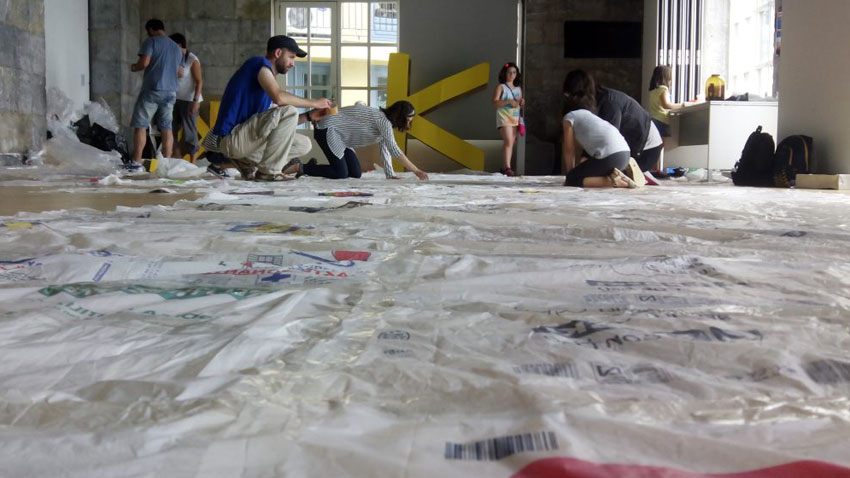Latest data show that some 7.3 bln. people live on the Earth. The waste we throw away is a problem for this planet which however is not discussed sufficiently yet. At the same time the so-called green initiatives have been growing in number over the recent years, with more and more insistent appeals on environmental protection and more rational usage of the water resources. Following the invitation of the Credo Bonum Foundation, representatives of a Spanish company arrived to Bulgaria, aiming to show that garbage can be recycled and used for the creation of different types of art.
Here is what Mrs. Monica Herrero from the Madrid office of the company said:
“Basurama is an artistic team, based in Madrid. In every project we participate together with different people – locals and volunteers. Basurata means that we love garbage, but we would like to consider the amount which we produce. We always say that everyone has something to give in our projects – everybody should display his or her better personality. If you have a project and the team members are the right ones, it’s good, but in a project with no concrete frames anyone may join and enrich it…”

The studio has executed over 100 projects so far in different parts of the world. They are negotiating right now with Madrid schools to receive the old blackboards that are not used anymore. Tables for tennis will be made of those and then will be donated to the students, so that the latter can play their favorite game. The In Love We Trash installation will be created in Sofia. This is a giant balloon, made of nylon bags – the material which is so convenient and which kills us. Over 1 trillion plastic bags are produced each year. The decompositing of one of these bags takes 100 years. If it goes into the ocean, it never decomposes due to the lack of light and warmth there. Some 100,000 sea animals die annually due to this type of pollution. On the other hand the production of such bags requires 16 bln. liters of petrol. The installation has been shown so far in Cape Town, Madrid, Bangkok, Istanbul, Sao Paulo and Boston. In Sofia it will be built up on the Monument of the Soviet Army site as part of the Books for Garbage initiative, which starts as of April 22, touring around 10 Bulgarian cities and towns. Anyone who brings in a kilo of plastic bags shall receive in exchange a free book. 19 tons of plastic were collected and recycled in this manner in 2016 with 17,000 new books given away.
English version: Zhivko Stanchev8 December is the day on which Bulgarian university students traditionally celebrate their holidays. The holiday is very popular in Bulgaria and often brings together not only current but also former students. The day was first celebrated in 1903..
Spicy means culture and Alexander Kyurkchiev - Sando, founder of a chilli pepper farm near Sofia and the first chilli pepper museum in this country, is sure of this. For the second year in a row he is organizing the Sofia Chilli Fest..
For more than a week now, the story of a family of breeders raising local breeds of sheep has captured the attention of not only the Bulgarian public, but also of compatriots abroad. Instead of following the drama in Parliament and the struggle for..
The making of knitted products is a traditional craft that deserves a revival and a new life, believes Alexandrina Pandurska, known for her numerous..

+359 2 9336 661
